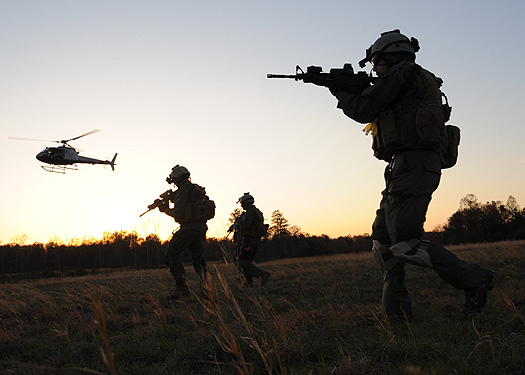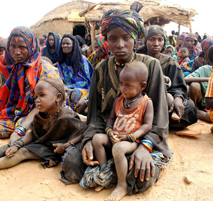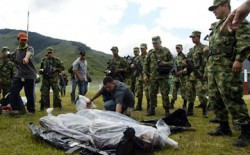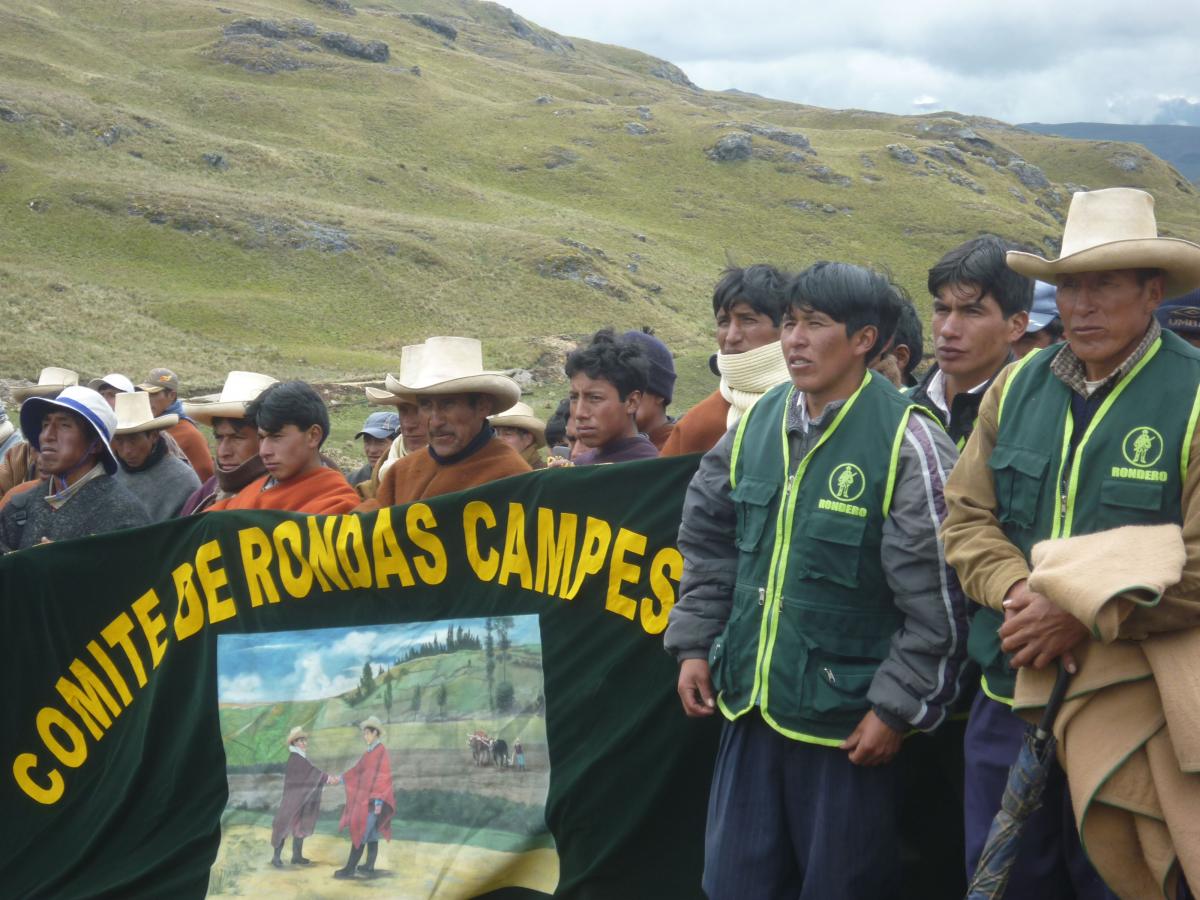Features
HONDURAS: DRUG WAR AS COUNTERINSURGENCY?

by Bill Weinberg, High Times
Recent headlines from Honduras give an uneasy sense of deja vu for the bad old days of the 1980s, when the US and its local proxy forces waged brutal counter-insurgency wars across Central America.
Residents of Ahuas village, on the remote Miskito Coast, took to the streets May 11 to protest a deadly military-style drug raid, demanding the US DEA leave their territory—and putting government offices to the torch to make their point. Miskito Indian leaders issued a statement declaring the DEA persona non grata in the territory.
MILITARY INTERVENTION IN MALI
"Nothing But Their Eyes to Cry With"
by Stefan Simanowitz, Toward Freedom
This June, following a short but bloody battle, Islamic fighters ousted the Tuareg National Movement for the Liberation of Azawad (MNLA) from the city of Gao. After a hiatus of nearly five months, fighting has again erupted between the MNLA and fighters from the Movement for Unity and Jihad in West Africa (MUJWA). On Friday, amid conflicting reports, there was fighting near Mali's border with Niger and Burkina Faso and more skirmishes took place on Monday. The MNLA claimed to have launched an offensive aimed at regaining the Gao region while the MUJWA have said they have attacked the MNLA and have taken control of the town of Menaka. While the situation is currently unclear, even if MNLA forces suffered heavier losses, the fact that they have been engaged in fighting with Islamists has added a new dimension to the complex conflict in the northern Mali.
THE DESCENT OF THE COLOMBIAN ARMY
"Take No Prisoners" in Practice
by John Lindsay-Poland, Fellowship of Reconciliation
A new and long-awaited report on civilian killings by the Colombian military from 2002 to 2010 argues convincingly that the spike of state violence during those years grew directly from the policies of "Democratic Security" that attempted to militarize all Colombian society.
The study was produced by the Human Rights and Humanitarian Law Observatory of the Colombia-Europe-United States Coordination (known by its acronym in Spanish, CCEEU), a coalition of more than 200 Colombian human rights organizations and their counterparts in Europe and the US. Twenty of these organizations have come together to document, analyze and carry out judicial strategies on extrajudicial executions. The coalition has painstakingly compiled records of 3,512 reported extrajudicial killings from 2002 to 2010, during the presidency of Álvaro Uribe.
HAITI: HIDDEN COSTS OF THE INDUSTRIAL ZONE

by David L. Wilson, World War 4 Report
On Oct. 22 Haitian president Michel Martelly hosted the official opening of the Caracol Industrial Park, a 617-acre tax-exempt factory complex in Haiti's rural northeastern corner that promoters say will bring as many as 65,000 jobs to the country.
The Haitian president was joined by an array of foreign officials and celebrities. The United States, which invested $124 million in the project, was represented by Secretary of State Hillary Clinton, Labor Secretary Hilda Solis, and Senator Patrick Leahy (D-VT). Another guest, former US president Bill Clinton, now the United Nations special envoy for Haiti, was a major promoter of the Caracol facility.
PERU'S SENDERO LUMINOSO BACK —AND THE "DIRTY WAR"?
by Bill Weinberg, Al Jazeera
According to a Truth and Reconciliation Commission established ten years ago, some 70,000 people—mainly indigenous peasants—were killed or forcibly "disappeared" in Peru's war against the Maoist guerillas of the Sendero Luminoso between 1980 and 2000. Forensic teams are still exhuming mass graves in mountain villages. Now, following April's hostage crisis in the Peruvian rainforest, there is an uneasy sense of deja vu in the Andean nation.
THE TRANS-PACIFIC PARTNERSHIP TRADE PACT
More Draconian Than NAFTA
by Peter Dolack, Systemic Disorder
Imagine a world in which which labor safeguards, safety rules and environmental regulations will be struck down because a multi-national corporation's profits might be affected. A world in which measures to reign in financial speculation are illegal. A world in which the task of governments, codified in law, is to maximize corporate profits.
Imagine a world in which corporations can bypass national laws and courts when they are in a dispute with a government, and instead can have their dispute adjudicated by a closed tribunal controlled by their lawyers.
Unfortunately, the above is not dystopian science fiction; it is the reality of the top-secret Trans-Pacific Partnership. If you like NAFTA, you will love the TPP.
BEHIND THE CHICAGO CONNECTION
Does a Mexican Drug Kingpin Have a Case Against the DEA?
by Andrew Kennis and Jason McGahan, Time Out Chicago
The abandoned car of Margarito Flores Sr., a resident of Chicago's Little Village neighborhood, was discovered in western Mexico's Sinaloa desert in 2009. A message directed to his twin sons, Pedro and Margarito, was stuck to its windshield: tell those fuckers to shut up or we are going to send you his head.
The Flores twins, 31-year-old Chicago drug traffickers, had warned their father not to return to Mexico, and especially not to the drug-war-torn state of Sinaloa, home to the Sinaloa cartel, which US intelligence considers one of the most powerful drug trafficking organizations in the world.
Margarito Sr. was never heard from again.
PERUVIANS STAND UP TO NEWMONT MINING
 by Bill Weinberg, The Progressive
by Bill Weinberg, The Progressive
The Newmont Mining Corporation, based in Colorado, has embroiled itself in a controversial project in northern Peru that locals say threatens their water and their future. Peasants and workers in the region have engaged in mass demonstrations and general strikes, and the president of Peru has responded by declaring a state of emergency. At stake is the economic model of aggressive resource extraction lubricated by the new free trade agreement with Washington.















Recent Updates
3 hours 30 min ago
6 hours 47 min ago
1 day 1 hour ago
1 day 2 hours ago
2 days 11 hours ago
2 days 11 hours ago
4 days 11 hours ago
5 days 1 hour ago
5 days 2 hours ago
5 days 2 hours ago